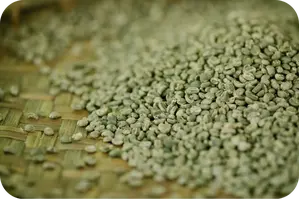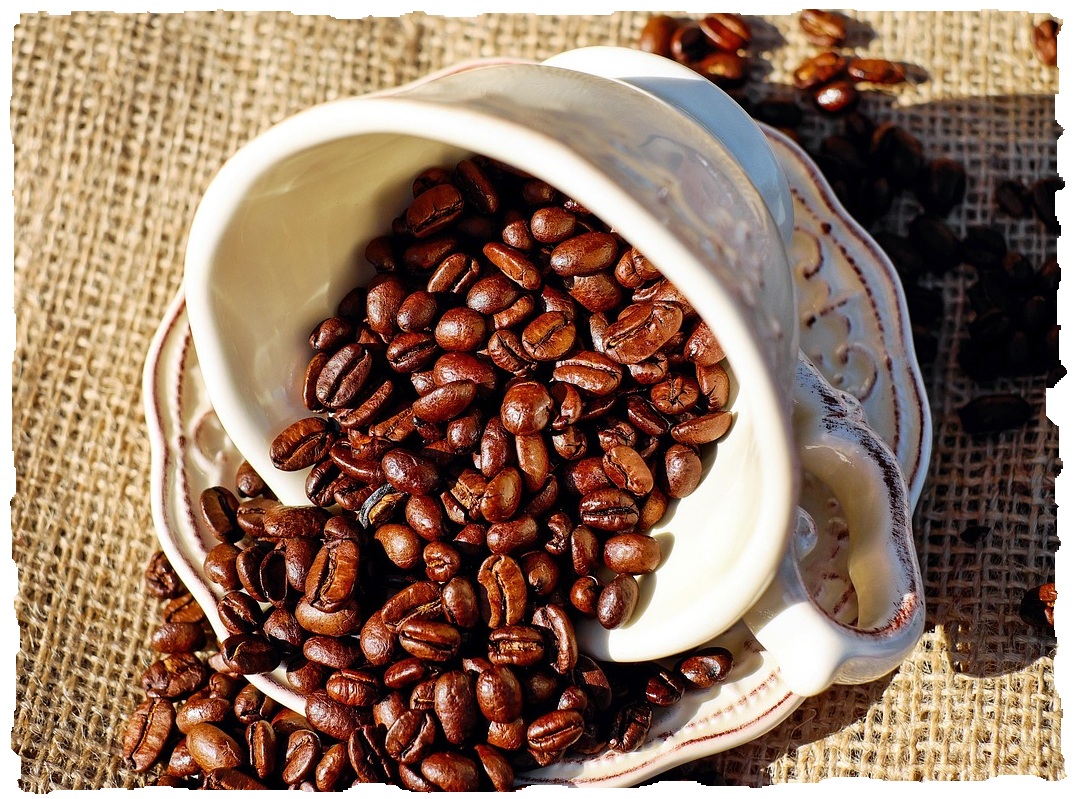Your Ultimate Guide to Organic Coffee: From Bean to Brew, Health to Happiness
Your ultimate guide organic coffee-Inasbay

Your Ultimate Guide to Organic Coffee: From Bean to Brew, Health to Happiness
Do you start your day with that comforting aroma, that first invigorating sip? Coffee is more than just a beverage; it's a daily ritual, a moment of pause, and for many, an essential source of energy. But have you ever considered the profound difference that choosing organic coffee can make, not just for your health, but for the planet and the farmers who cultivate it? And how can you ensure you're brewing the perfect cup, whether it's a classic hot brew or a refreshing cold one?
This comprehensive guide is designed for you, the discerning coffee lover. We'll delve into the unexpected benefits of organic coffee, explore how to select the best beans for your preferred brewing method, and even settle the popular debate between cold brew and iced coffee. By the end, you'll not only be an organic coffee connoisseur but also understand why Inasbay Marketplace is your trusted Canadian marketplace for high-quality, ethically sourced organic coffee.
The Unexpected Benefits of Organic Coffee: More Than Just an Energy Boost

Choosing organic coffee is a conscious decision that brings a cascade of advantages, extending far beyond simply waking you up in the morning. It’s about purity, sustainability, and a richer experience.
Why Organic? Purity in Every Sip
The primary reason many discerning drinkers opt for organic coffee is its purity. Organic coffee is cultivated without the use of synthetic pesticides, herbicides, or chemical fertilizers. This means that when you brew your cup, you're enjoying coffee beans free from potentially harmful chemical residues. This commitment to natural farming methods ensures a cleaner, purer product, aligning perfectly with a health-conscious lifestyle.
A Powerhouse of Antioxidants for Your Well-being
All coffee contains antioxidants, but studies suggest that organic coffee, often grown in richer, healthier soil, may boast even higher levels. These vital compounds protect your cells from damage caused by free radicals, contributing to overall well-being and potentially reducing the risk of chronic diseases. When you choose organic, you're not just getting a delicious drink; you're nourishing your body with every sip.
Supporting Your Metabolism and Cognitive Function
The caffeine in coffee is a well-known stimulant, but organic coffee offers this energy boost without the chemical baggage. It can help stimulate your metabolism, potentially aiding in fat burning, and enhance cognitive functions like focus and alertness. The presence of natural compounds in organic coffee can also contribute to improved mood and may even help in reducing the risk of depression.
A Gentle Approach to Your Digestive System
For some, conventional coffee can be harsh on the stomach due to its acidity and chemical residues. Organic coffee, grown in healthier soil and free from harsh chemicals, can often be gentler on your digestive system, leading to a more comfortable and enjoyable coffee experience.
Environmental Stewardship: A Choice for the Planet

Beyond personal health, choosing organic coffee is a powerful statement for environmental protection. Organic farming practices promote:
Soil Health and Biodiversity: By avoiding synthetic chemicals, organic farms foster richer, more fertile soil and support a diverse ecosystem of plants and wildlife.
Water Conservation: Organic methods often involve practices that conserve water resources and prevent chemical runoff into local waterways.
Reduced Carbon Footprint: The absence of energy-intensive synthetic fertilizers and pesticides contributes to a lower carbon footprint in organic coffee production.
Ethical Sourcing and Fair Trade: Many organic coffee farms are also committed to fair trade practices, ensuring that farmers receive equitable compensation and work in safe conditions. This creates a positive ripple effect, supporting sustainable communities.
Choosing Your Perfect Organic Coffee: Origins, Roasts, and Certifications

Navigating the world of organic coffee can be an exciting experience. Understanding a few key factors will help you select the best beans for your palate and brewing method.
Understanding Coffee OriginsThe origin of your coffee beans significantly impacts their flavour profile. For example:
- Asian Organic Coffees: Tend to be bolder, with earthy and sometimes spicy undertones
- African Organic Coffees: Known for their bright, fruity, and floral notes.
- Latin American Organic Coffees: Often feature notes of chocolate, nuts, and a balanced acidity.
Decoding Roast Levels: Light, Medium, and Dark Organic Roasts
The roast level dramatically transforms the coffee's flavour.
- Light Roast Organic Coffee: Retains more of the bean's original characteristics, offering bright acidity, floral, and fruity notes. It also tends to have slightly more caffeine.
- Medium Roast Organic Coffee: A balanced profile with a fuller body, reduced acidity, and notes of caramel or chocolate. This is often a crowd-pleaser.
- Dark Roast Organic Coffee: Develops smoky, bittersweet, and sometimes chocolatey notes. The original bean flavours are less prominent, replaced by the roast's intensity.
The Importance of Organic Certification
Always look for recognized organic certification labels (e.g., USDA Organic, Canada Organic) on your coffee packaging. These certifications ensure that the coffee has met rigorous standards throughout its cultivation, processing, and packaging, guaranteeing its organic integrity. This is your assurance that you're truly getting a chemical-free product that aligns with sustainable practices.
Mastering Your Brew: The Best Organic Coffee for Every Method
The right brewing method can unlock the full potential of your organic coffee beans.
Pour Over / Drip Coffee
For a clean, bright cup that highlights nuanced flavours, choose light to medium roast organic beans. A medium grind is ideal. This method allows you to appreciate the subtle complexities of single-origin organic coffees.
French Press
If you prefer a rich, full-bodied cup with a velvety texture, a medium to dark roast organic coffee with a coarse grind is perfect for the French Press. This immersion method extracts more oils, resulting in a robust flavour.
Espresso / Espresso Machine
For a concentrated, intense shot with a beautiful crema, opt for dark roast organic beans. An extra-fine grind is essential. Many espresso blends combine different organic bean types to achieve a complex and balanced shot.
How to Make a Matcha Green Tea Latte (Revisited for Organic Focus)
As a vibrant and healthy option, knowing how to make a matcha green tea latte with organic matcha is a valuable skill. Remember the steps: sift the organic matcha, whisk with hot water, then combine with frothed milk. This delightful drink offers sustained energy and a calm focus, perfect for a productive afternoon.
Cold Brew vs. Iced Coffee: Which Organic Brew is Right for You?
The summer heat often sparks the debate: cold brew vs. iced coffee? While both are refreshing, their preparation methods and flavour profiles are distinctly different, especially when using organic coffee.
Cold Brew: Smoothness and Low Acidity
Cold brew is made by steeping coarsely ground organic coffee beans in cold water for 12-24 hours. This slow, no-heat extraction process results in a naturally sweeter, smoother, and significantly less acidic concentrate. It's often diluted with water or milk before serving. If you experience stomach discomfort from acidic coffee, cold brew made with organic beans might be your perfect solution. It also tends to have a higher caffeine content per ounce, offering a powerful yet gentle energy boost.
Iced Coffee: Brightness and Quick Preparation
Iced coffee, on the other hand, is hot-brewed organic coffee that has been chilled and then poured over ice. Because it's brewed hot, it retains the brighter, sometimes more acidic notes of the original coffee. While quicker to prepare, it can sometimes taste diluted as the ice melts. If you enjoy the classic bold flavour of hot coffee but want it cold, iced coffee is your go-to.
When choosing between cold brew vs. iced coffee, consider your preference for acidity, preparation time, and desired caffeine kick. Both are excellent ways to enjoy your organic coffee!
Your Journey to a Better Cup Starts Here
The world of coffee, particularly organic coffee, offers an incredible journey of flavour, health benefits, and ethical choices. From the robust kick of a black tea (or rather, a strong black coffee!) to the smooth, low-acid delight of cold brew and the vibrant energy of a matcha green tea latte, there's a perfect brew for every moment and need. By understanding the nuances of origins, roasts, and brewing methods, and by prioritizing organic tea (and coffee!), you empower yourself to make informed decisions that benefit your body, your palate, and the planet.
At Inasbay Marketplace, we are passionate about bringing you the finest selection of organic coffee from reliable suppliers in environmentally friendly packaging, all at very affordable prices. As your trusted Canadian marketplace, we invite you to embark on your coffee journey with us. Shop online today to find great deals and discover the perfect beans to nourish your body, invigorate your spirit, and elevate your daily ritual. Your ideal coffee experience awaits!
 |
Share |

 Login with Google
Login with Google




